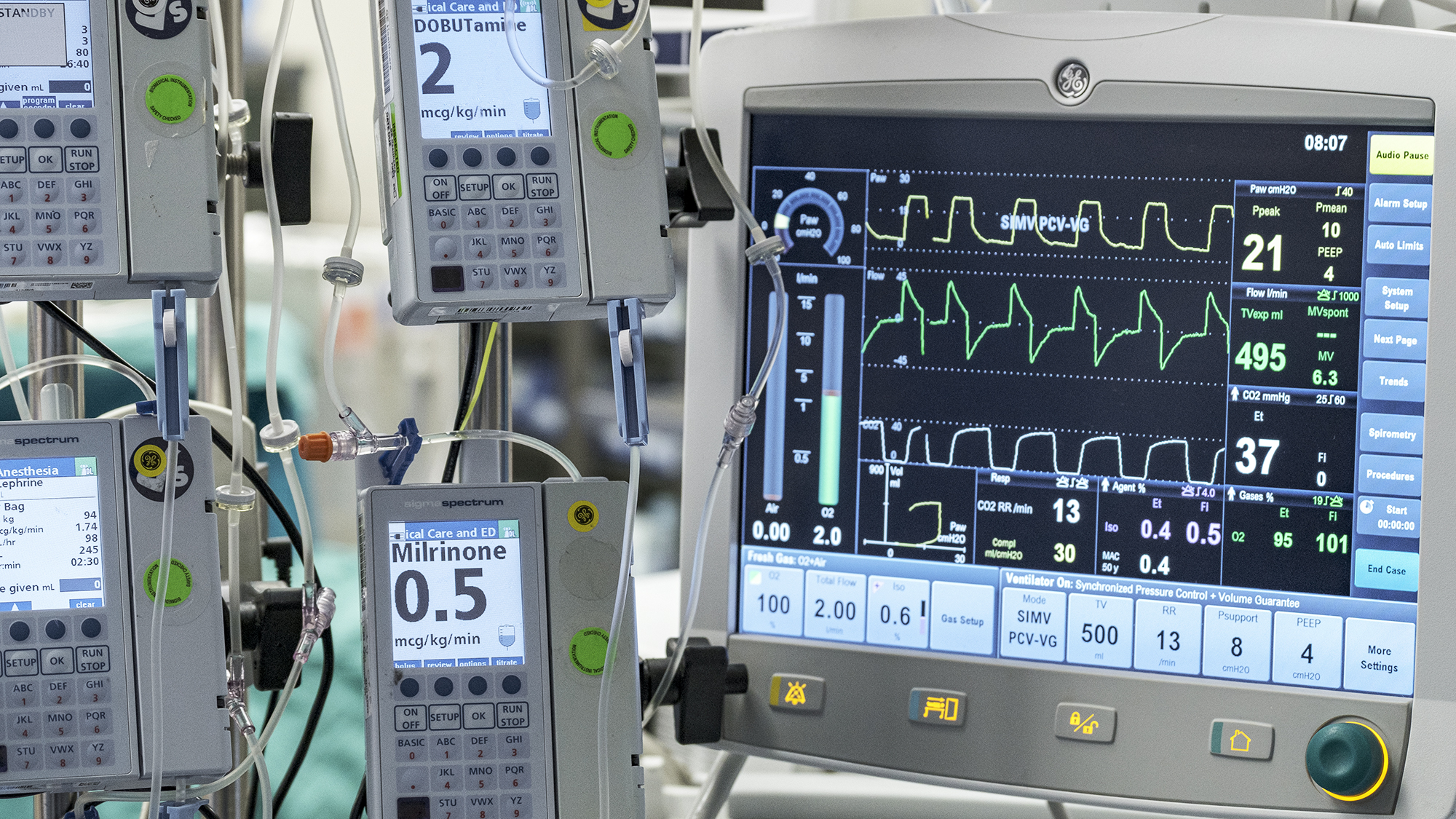About Us
The Division of Cardiothoracic Anesthesia offers advanced training in the anesthetic care of cardiothoracic surgical patients. The one-year fellowship program is fully accredited by the American Council on Graduate Medical Education (ACGME) and prepares graduates to become independent practitioners of adult cardiothoracic anesthesiology. This is accomplished through challenging clinical rotations, weekly didactic sessions, and multi-disciplinary academic conferences.
In addition to fulfilling all ACGME requirements, fellows are provided the necessary training and experience to become certified in advanced perioperative TEE by the National Board of Echocardiography (NBE). Since its beginning in 1977, the program has trained more than 200 fellows in adult cardiothoracic anesthesiology, making Emory one of the largest and most well-established fellowships in the country. Whether graduates desire a career at an academic institution or a community hospital, the program's goal is to train leaders in this challenging field.
Educational Program
The educational program involves multi-disciplinary conferences as well as sessions tailored specifically for CT anesthesiology fellows.
These include:
-
Morning CTA fellow didactic sessions (weekly)
-
Tuesday evening department-wide Grand Rounds (weekly)
-
Evening TEE reading sessions (weekly)
-
Cardiac M&M conference with CT surgery, anesthesia and critical care (monthly)
-
CT Journal Club (quarterly)
-
Anesthesiology Quality Improvement conference (quarterly)
-
Opportunities to attend national society meetings
Additionally, each fellowship class completes a systems-based improvement project, helping to build teamwork and leadership skills.
Research
Investigations of cardiovascular and pulmonary pharmacology and physiology are performed in the laboratories of the Departments of Anesthesiology, Surgery, and Medicine in the Woodruff Memorial Building adjacent to Emory University Hospital
Areas of study include:
-
Inflammation and anaphylaxis
-
Coagulation disorders and treatment
-
Blood conservation strategies including pharmacologic agents
-
Near-infrared spectroscopy
-
Echocardiography
The above studies utilize a broad spectrum of research techniques including:
- Blood gas analysis
- Chromatography
- Spectrophotometry
- Radioisotopes
- Sophisticated animal models
- Statistical data analysis.
Fellows interested in research are encouraged at the beginning to join an ongoing project as part of a team. Up to two months during the fellowship year may be dedicated to a project, and those who are interested in an academic career have the opportunity to pursue their own focus of the investigation.
The goal is to gain experience in experimental design, interpretation of data (including statistics), and presentation of results and conclusions in peer-reviewed journals and at meetings of national scientific and medical organizations.
Fellowship Rotations
CT Operating Rooms (6 months)
Throughout the year, fellows spend a total of six months performing anesthetics on patients having a wide range of cardiothoracic procedures. Experience is gained in placing invasive monitors, treating coagulation disorders, as well as managing inotropic and mechanical support. The fellow’s role includes being the primary anesthesia provider, as well as supervising junior residents.
Dedicated Echocardiography Training (3 months)
Intensive training in echocardiography is divided into two six-week blocks. Intraoperative TEE is emphasized, with the fellow performing exams one-on-one with an attending anesthesiologist. Additional experience is gained with cardiologists in the echo laboratory performing TTEs and dobutamine stress tests.
Cardiothoracic ICU (1 month)
Fellows spend one month on the Critical Care Medicine service learning how to care for patients following cardiac, pulmonary and transplantation procedures.
Elective Time (2 months)
Choices of electives include:
- Perfusion Medicine
- Cardiac Catheterization
- Electrophysiology
- Advanced Echocardiography.
Additionally, time with pediatric CT anesthesiologists and independent research projects are available on a limited basis.
Application Process
Applications begin being accepted approximately 18 months prior to the start date (i.e. December 2019 for a July 2021 start date), with interviews taking place from March through May.
Match Process
All positions are offered via the Match system. Applicants should register at SF Match and obtain the universal application for Adult Cardiothoracic Anesthesiology at that site. Completed applications are electronically distributed to programs directly from SF Match.
Fellows enter the program at the PGY‐5 or PGY-6 level.
Minimum entry requirements
- BE/BC by the American Board of Anesthesiology
- Successful completion of USMLE steps 1,2, and 3
- Hold a temporary or unrestricted GA medical license
Facilities
The Division of Cardiothoracic Anesthesia covers the two major hospitals within the Emory Healthcare system, providing care to more than 2,000 CT surgical patients.
Emory University Hospital is a 600-bed tertiary referral hospital in which more than 800 cardiac and 400 thoracic surgical procedures are performed each year in adult patients. Complex cases with high acuity are performed daily. These include aortic aneurysms and dissections, heart and lung transplantation, insertion of ventricular assist devices, and treatment of adult congenital heart disease. Experience is gained in medical and surgical treatment of dysrhythmias, management of acute and chronic heart failure, clinical pharmacology and physiology, and management of mechanical circulatory support.
Emory University Hospital Midtown
Emory University Hospital Midtown is a 583-bed general community hospital in which more than 1000 cardiac and thoracic surgical operations occur annually. Off-pump coronary artery revascularization (OPCAB) is performed here in over 70% of CABG patients. Advanced procedures such as robotic surgery and transcatheter aortic valve implantation (TAVIs) are also regularly performed. In addition to the OR, the Division of Cardiothoracic Anesthesia also provides service to a busy EP lab, performing TEEs for atrial appendage occluder devices and percutaneous VADs.


